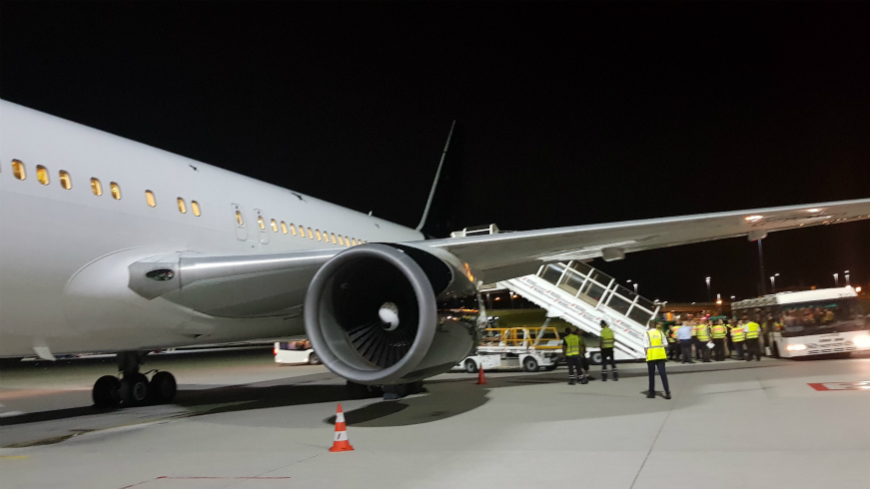The report concerns the monitoring of a return flight of Afghan nationals from Munich to Kabul (Afghanistan) on 14 August 2018, carried out under the authority of the German Federal Police and in co-operation with the European Border and Coast Guard Agency (Frontex). The CPT’s delegation observed all stages of the removal operation, including the preparations at Eichstätt Prison (Centre for detention pending deportation) in Bavaria. This was the fifth time the CPT has examined a removal operation by air.
The CPT concludes that the operation was well prepared and generally carried out in a professional manner. Detained persons were treated correctly by escorting police officers, with one exception. The exception concerns the apparent ill-treatment of a returnee on board the aircraft who violently resisted his removal. The CPT recommends that techniques which impede a person’s capacity to breath and/or inflict severe pain to gain compliance (i.e. squeezing a person’s genitals) must not be applied by police escorts. Further, all escorting police officers should wear means of identification during removal operations and the overall number of trained escorts should be increased.
The CPT also recommends strengthening safeguards for foreign nationals to be returned. It is crucial that no person is removed from Germany while appeal proceedings that have suspensive effect are still pending before a court; this should be verified in practice by means of a “last call procedure”. The Committee is critical of the practice of late or even last-minute notification of returnees of their impending removal on the day of their scheduled flight. Persons at risk of self-harm and/or suicide or with mental health problems should undergo a comprehensive medical assessment. Moreover, the existing complaints mechanism should be made accessible and effective in practice, including by providing adequate information to returnees on how to make a complaint.
Regarding returnees held in immigration detention in Eichstätt Prison (Centre for detention pending deportation), the CPT recommends that the Bavarian authorities take the necessary steps to adapt (former) prison establishments to the specific needs of immigration detainees and reiterates that detention pending deportation should be governed by specific rules. The Committee is critical of various aspects of the treatment of immigration detainees, in particular when placing returnees at risk of self-harm and/or suicide in security cells.
In their response, the German federal authorities accept a number of recommendations, including those on the use of force, police escorts and complaints, while others are still the subject of an on-going debate in the country, such as the one on wearing visible means of identification. The response also refers to the different laws and practices adopted by the various Länder authorities in the context of removal operations.
The report and response have been published at the request of the German authorities.




